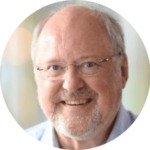July is Sarcoma Awareness Month, and Roger Wilson CBE took this opportunity to look at what is happening in sarcoma research. Roger was diagnosed with soft tissue sarcoma in 1999 and has faced many recurrences. He has worked with the NCRI Consumer Forum since 2002, serving on the Board from 2004-2007.

Sarcomas are challenging to research. They are rare, accounting for about 1.5% of all cancers, and no individual sarcoma is the same. Sarcomas are made up of more than 100 different diseases. However, for a patient diagnosed with sarcoma, it is no longer rare. It is about you.
I will not be going into the issues of handling a rare cancer when you have one. That is for another time. But, I will say that my perspective has been built up over 20 years by six recurrences, ten surgical interventions, chemotherapy, radiotherapy, and so many CT scans I probably glow in the dark!
But I have been fortunate to have been a member of the NCRI Sarcoma Group for most of that time. I have also worked with the British Sarcoma Group, Sarcoma UK, Sarcoma Patients Euronet and the EORTC (European Organisation for the Research & Treatment of Cancer). In addition, I have attended and spoken at conferences of CTOS (the Connective Tissues Oncology Society), the main forum where sarcoma research from all over the world is presented and discussed.
Collaboration outside the UK is essential for a rare disease such as sarcoma. As a patient I have no boundaries, and the freedom to debate and discuss sarcoma with pan-European and global scientists, researchers, doctors and patients enables me to explain what is happening in the UK and to bring in different perspectives. The aim must be collaboration, because with a set of rare diseases, gaining the attention of academic researchers, pharmaceutical companies, and funders not directly connected with a sarcoma treatment centre can be challenging.
The UK has shown itself to be a hot spot for collaboration. For example, running a genetic study in sarcoma in the UK became possible because Genomics England agreed to focus some of its resources on the disease, and over 1000 surgical samples were collected. Analysis of these is underway at present. A surgical study using fluorescent dye is about to start, led from Newcastle and funded by NIHR, which will involve 8-10 UK surgical centres and one in the Netherlands. A study into retroperitoneal sarcomas, examining neo-adjuvant chemotherapy, is worldwide with a range of funders, including Sarcoma UK. Another study involving genomic and proteomic analysis brings together five centres in UK, Italy and Spain, led by ICR and the Royal Marsden, Cancer Research UK being the main funder. It also involves image and sample collection, and data exchange across national boundaries, bringing diverse expertise to address the challenge of accurate diagnosis.
Sarcoma Patients Euronet is our patient network which started as European and has gone global. It is about to be renamed Sarcoma Patient Advocacy Global Network, a bit less catchy perhaps but at least clear in its description. It is developing a collaborative project with CTOS to bring together the worldwide scientific and patient communities to consider academic research priorities and, where appropriate, to be an influence on the pharmaceutical industry agenda.
The main first-line treatment for most sarcomas is the chemotherapy doxorubicin, which was first proven for sarcoma in 1975. There have been many clinical studies to find something better, but while a few individual sarcomas have a more recent drug available, most do not. Sarcomas also have a different age than most solid cancers. About 40% of patients are aged under 50, and 14% of childhood/teenage cancers are sarcomas. So, finding less toxic and more effective treatments for advanced diseases is vital for us.
Through patient advocacy and the collaborative abilities of our UK researchers, scientific and clinical, we have a strong presence in the wider world of sarcoma research. NCRI is a critical component representing the UK in the world of sarcoma research, and the patient voice contributes in so many ways.